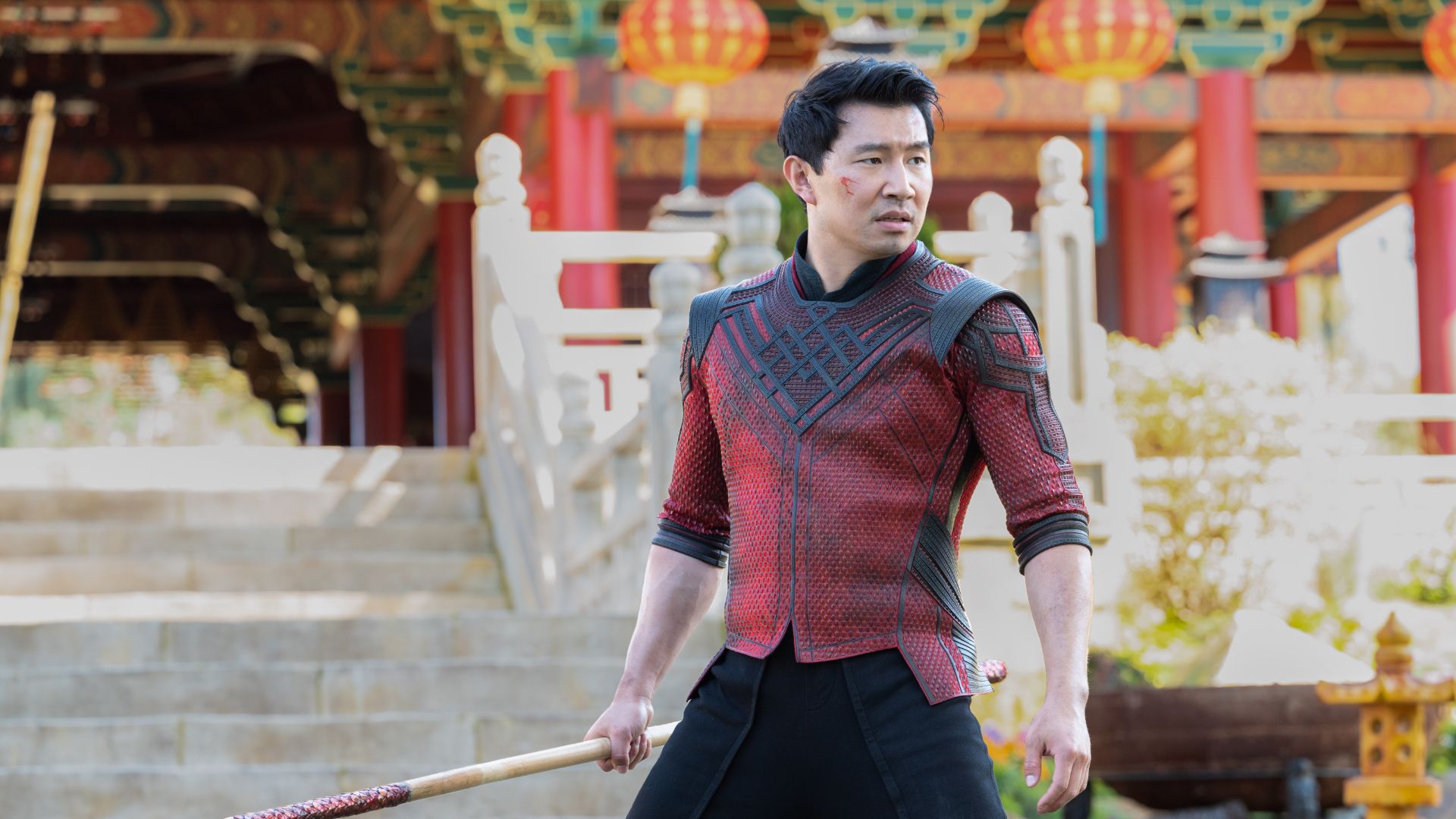GamesRadar+ Verdict
Marvel’s Phase Four makes up for lost time with an origin story that richly entertains when it’s not pushing boundaries.
Why you can trust GamesRadar+
"Always bet on Asian!" cackles a cocksure comic character on the periphery of Shang-Chi and the Legend of the Ten Rings who has just won big off the back of such a wager. It is notable though – and more than a little shaming – that it has taken Marvel 25 films to make a similar gambit, having spent the previous 24 keeping Asian characters on the sidelines or, worse, having Caucasian performers play them.
Destin Daniel Cretton’s film – not only the first MCU feature with an Asian-American lead, but also the first to boast a majority Asian cast – won’t solve Marvel’s diversity problem by itself. But it’s certainly a step in the right direction, not to mention a tacit acknowledgment of the work still to be done as the studio moves from a universe dominated by white guys named Chris into something slightly more reflective of the larger world beyond.
That’s the world in which Shang-Chi begins, one in which its underachieving hero – a San Francisco valet driver who uses the deliberately nondescript alias Shaun – can happily exist beneath the radar with fellow slacker Katy (Awkwafina). Not for him is the life of crime his father Wenwu (Tony Leung), who has pursued as the head of the Ten Rings, a nefarious syndicate that has "toppled governments and changed the course of history" with the aid of the super-human strength-creating, eternal life-bestowing bracelets he sports on his forearms.
Having fled from his widower dad’s military compound as a teenager, Shang-Chi (Simu Liu) wants little more than regular karaoke and the occasional joyride in a client’s motor. Until, that is, he encounters some heavies on the bus who oblige him to break out the devastating martial arts prowess he has hitherto been hiding under the most unassuming of bushels.
The thrilling action sequence that follows not only kicks the film up a gear with its Speed-recalling havoc but also reveals its true colors as well: as a kick-ass chopsocky blockbuster with stylistic links to Crouching Tiger, Kung Fu Hustle, and the collected works of Jackie Chan. (The film is dedicated to stunt coordinator Bradley Allan, a former member of Chan’s Sing Ga Ban team.) A trip to Macau finds Shang-Chi reuniting with estranged sister Xialing (Meng’er Zhang) for vertiginous fisticuffs on some skyscraper-clinging bamboo scaffolding that Chan himself would be proud of. The multiple training montages, meanwhile, celebrate dogged, sweaty-browed persistence as keenly as any Karate Kid.
One thing Shang-Chi doesn’t seem particularly beholden to is the MCU itself. Indeed, with the exception of a poster offering advice for those afflicted with 'Post-Blip Anxiety' and the obligatory handful of fan-pleasing cameos, Cretton’s film feels almost deliberately separate from its own lineage, most notably when the story shifts to a mythical domain called Ta-Lo, populated by a phantasmagorical array of outlandish beasties. Marvel has flirted with kaiju before (the giant Ant-Man turned into in Captain America: Civil War, for example, or the Chitauri leviathans from the first Avengers), but here it goes the full epic hog by pitting a gigantic water dragon against an equally mammoth bat demon with a taste for human souls. If Shang-Chi himself gets rather lost in the mayhem, that’s a small price to pay for a finale that, if not quite up to Avengers: Endgame standards, at least shows the studio hasn’t lost its own appetite for gargantuan effects-laden spectacle.
As much as the visuals divert, though, it’s the cast that proves the film’s most eye-catching element, Cretton wisely surrounding his likable yet slightly anonymous lead with a line-up of top-notch talent. Leung, in his first English-speaking role, brings a lifetime of gravitas to the unusually complex Wenwu, a man whose devotion to his late wife (Fala Chen) provides the impetus for his world-endangering ambitions, while Michelle Yeoh exudes both warmth and strength in her role as Ta-Lo’s chief protector. In Awkwafina, meanwhile, the audience has a perfect proxy, her slack-jawed bemusement at the craziness her workmate introduces her to providing a constant source of pomposity-puncturing humor. That their relationship remains staunchly platonic is one of the few missteps here, there being little reason why the duo couldn’t find the romance between verses of "Hotel California".
"You’re a product of all that came before you!" Yeoh tells Liu as he prepares to go mano a mano with his fearsome old man. At its best, though, Shang-Chi doesn’t feel part of some grand masterplan but its own distinct animal: flawed and overblown in places, admittedly, but always enthralling and with a zest that, unlike the backward-looking Black Widow, firmly steers the MCU into previously uncharted territory.
Shang-Chi and the Legend of the Ten Rings reaches cinemas on September 3. Check out more of our MCU coverage with our guide to Marvel Phase 4.
More info
| Genre | Superhero |
Neil Smith is a freelance film critic who has written for several publications, including Total Film. His bylines can be found at the BBC, Film 4 Independent, Uncut Magazine, SFX, Heat Magazine, Popcorn, and more.



